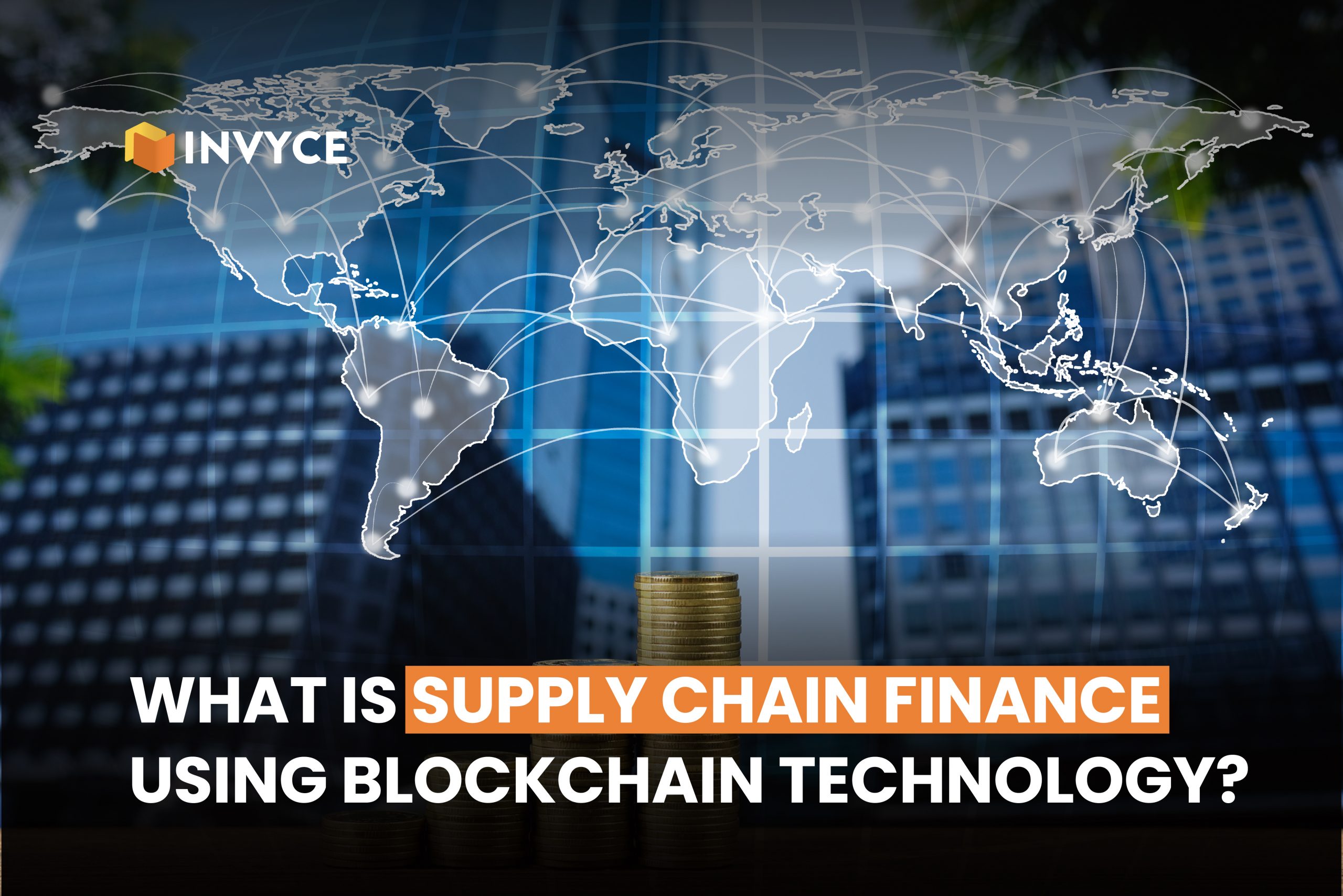15 Aug

In the business world, supply chain finance is the backbone of how goods are moved from suppliers to buyers. It isn’t always smooth sailing, though. At times, traditional methods of managing these transactions can result in delays and uncertainties, leaving everyone in the dark. There is, however, new hope for transparency and efficiency in the supply chain finance sector with the emergence of blockchain technology Known for its security and transparency, blockchain technology is revolutionizing the financial industry. Every step of the transaction is recorded and available to all participants in a digital ledger. Supply chain finance could be reshaped with this newfound transparency, resulting in greater reliability and trust for everyone involved.
In this article we explores how blockchain is changing supply chain finance and why it’s such a game-changer today.
What is Blockchain Technology?
Blockchain is like a digital chain of records, known as blocks. Each block is linked to the one before it using strong security, making the entire chain highly secure. Every block contains a timestamp, showing when it was created, and details of the transaction, such as a purchase record. This setup makes blockchain incredibly transparent because everyone involved can see each step of the transaction.
You might be familiar with blockchain from cryptocurrencies like Bitcoin, but its uses go far beyond digital money. Blockchain is also great for applications like supply chain finance, where transparency and security are essential. While it’s not yet universally adopted across all industries, blockchain is particularly well-suited for streamlining supply chain finance.
In essence, blockchain is a secure, transparent way to keep track of transactions. It acts like an open book that everyone can read, making trade more trustworthy and easier to manage
How Does Blockchain Work in Supply Chain Finance?
Blockchain technology is transforming the world of supply chain finance by adding much-needed transparency, security, and efficiency. For businesses, this means fewer delays, reduced risks, and smoother operations.
Improved Transparency
One of the biggest perks of using blockchain in supply chain finance is the transparency it offers. Traditionally, information flow between buyers, suppliers, and lenders has been scattered, often leading to delays, miscommunication, and sometimes even fraud. But blockchain changes all of that.With blockchain, every transaction is recorded in a digital ledger that everyone involved can see in real-time. This keeps everyone in the loop and ensures nothing is hidden. Once a transaction is recorded, it’s there for good—it can’t be altered or deleted. This makes the system incredibly trustworthy, as everyone can rely on the accuracy of the information.
Improved Security
Blockchain really stands out when it comes to security. In traditional supply chain finance, there’s always a risk of data breaches, unauthorized access, or fraud. Blockchain greatly reduces these risks because it’s decentralized and uses strong encryption.
Instead of relying on a single central server, blockchain operates on a network of computers, or nodes, with each node having a copy of the entire blockchain. This makes it nearly impossible for anyone to tamper with the data. Additionally, each transaction is protected with advanced encryption, ensuring that only authorized parties can access the information. This makes blockchain a very secure way to manage financial transactions.
Increased Efficiency
Blockchain makes supply chain finance more efficient by eliminating unnecessary steps and middlemen. Traditionally, the process involves multiple parties, which can cause delays and increase costs. Blockchain simplifies everything.
One of the coolest features of blockchain is smart contracts. These are self-executing contracts where the terms are coded in.
For instance, once a supplier completes an order, the smart contract can automatically trigger payment. This automation speeds up the process and reduces the chance of mistakes. With fewer intermediaries and automated processes, transactions happen much faster, helping businesses keep a steady cash flow and minimizing supply chain disruptions
Cost Reduction
Blockchain not only makes supply chain finance more efficient, but it also helps cut costs. By reducing the need for manual processes, paperwork, and intermediaries, blockchain lowers expenses that typically add up in traditional supply chain finance.
For example, since blockchain automates tasks like invoicing and payment processing, businesses can save on administrative costs. This leads to smoother operations with fewer mistakes. Additionally, because blockchain reduces the risk of fraud and disputes, businesses often see lower insurance premiums and financing costs.
Real-Time Tracking and Monitoring
One of the most impressive aspects of blockchain in supply chain finance is its ability to track goods and financial transactions in real-time. This level of visibility is a game-changer for businesses wanting to improve their supply chains.
With blockchain, everyone involved can see the movement of goods and payments as they happen. This transparency helps businesses plan better, coordinate more effectively, and make smarter decisions, leading to smoother operations. Plus, with real-time data, businesses can spot potential problems early—like a delayed shipment or a payment issue—and take action to prevent these issues from becoming bigger problems.
Improved Collaboration
Blockchain’s transparency helps everyone involved in supply chain finance work better together. By sharing information, it improves communication, leading to quicker decisions and smoother operations.
With blockchain, everyone gets access to the same, up-to-date information, so there’s no need for long reconciliations or dealing with discrepancies. This makes collaboration easier and more seamless. Plus, real-time updates and clear records mean less back-and-forth between parties, speeding up the entire process and making everything run more efficiently
Conclusion
Blockchain is changing supply chain finance by making the entire process more transparent, secure, and efficient. With blockchain, buyers, suppliers, and lenders can all track transactions in real-time, reducing risks and building trust among all parties. As blockchain technology continues to grow in popularity, it’s likely to become a key tool for improving supply chain finance across industries.
Marjina Muskaan has over 5+ years of experience writing about finance, accounting, and enterprise topics. She was previously a senior writer at Invyce.com, where she created engaging and informative content that made complex financial concepts easy to understand.
Related Post
Copyright © 2024 – Powered by uConnect



Marjina Muskaan